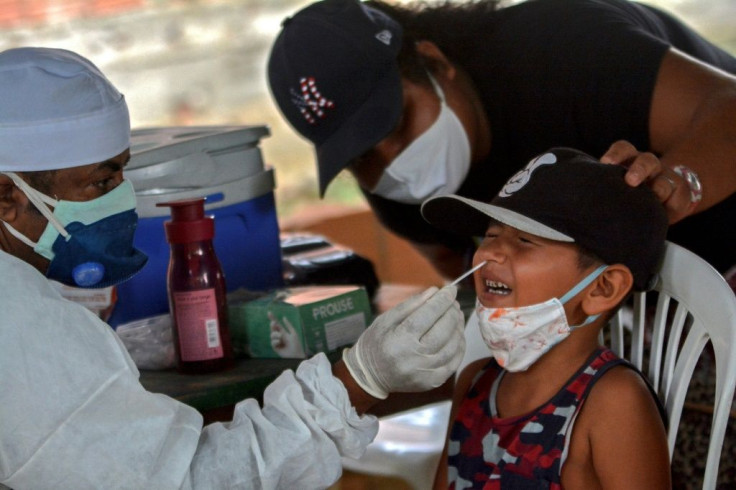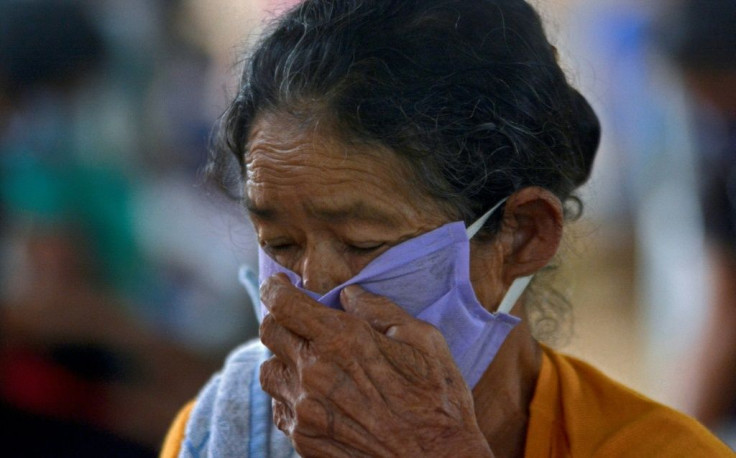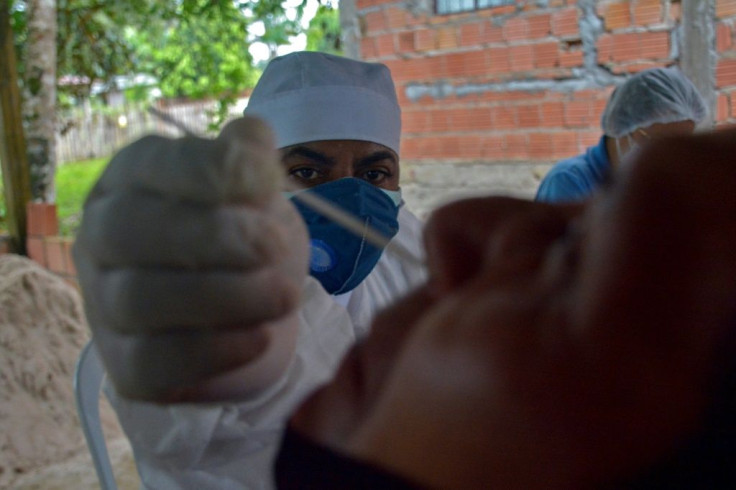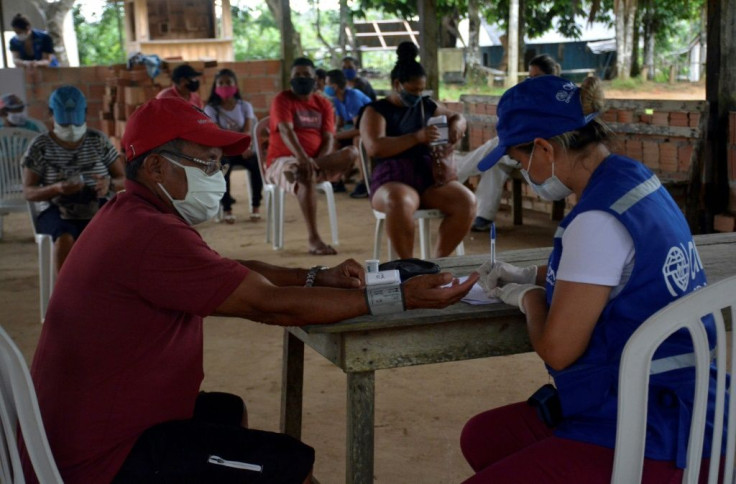Frustrated Amazon Villagers Tackle Covid With Faith, Potions
Remote Amazon village communities, feeling abandoned by the state, are turning to religion and traditional remedies for protection in the coronavirus pandemic.
Raimundo Leite de Sousa, 34, claims he recovered from Covid-19 with a potion made from the stinktoe and crabwood plants, flavored with lemon and garlic.
"It (the virus) bent me over double but it didn't take me," said Leite de Sousa, who avoided the fate of some 210,000 other Brazilians who have died -- a national toll surpassed only by that of the United States.

Leite de Sousa lives in Bela Vista do Jaraqui, an hour from Manaus, the regional capital of Amazonas state which has been hit hard by a second pandemic wave.
The riverside village offers a stunning panoramic view of the Rio Negro and is home to 112 families whose wooden huts are accessed by dirt tracks leading up from the jetty.
From the river, the village is masked by a wall of trees.
The nearest health center is in another village -- 25 minutes on foot or 10 minutes by boat.

"Although many people lost relatives, I am happy because I have faith that God is the greatest," said Silvio de Melo, who took part in a Covid testing program of the Manaus municipality.
Locals say it was only made possible by donations. Forty-five people were tested on Tuesday and will have to wait five to seven days for their results.
Erasmo Morales, 55, says "Covid-19 is the most serious problem in Amazonas," but he is not worried because "God looks after everyone and if (death) comes, there's no remedy that will save you."
For his neighbor Francisco Morales it is a matter of prevention: he has augmented his personalized health potion with a daily morning shot of cachaca, a distilled spirit.

In the village, everyone wears a mask, even children.
More than half of the community has never had a coronavirus test, even though they live in one of the worst-affected states in Brazil.

There is also a new strain of the virus from Amazonas state which is believed to be more contagious than the original.
"I'm disappointed, the governor could have done more," said Jardei Santos, 35, who believes she has caught the disease as she is suffering from nausea and a headache.
Sitting on a wooden bench waiting for her turn to be tested, she says she is afraid for herself and her family.
"I'm more worried than I was last year because I see more people infected. But we have to pray, God doesn't abandon you."
In Bela Vista do Jaraqui, villagers fish and till the land. Much of their time is spent going back and forth to the river.
Whereas in Manaus, people have died as hospitals ran out of oxygen supplies, Leite de Sousa points to the abundance of oxygen in the jungle and says nature has saved the villagers.
"All that struggle in the city for this oxygen we have here," he said, blaming the crisis on a "very serious management failure."
"If I don't know how much fuel I need to arrive in Manaus by boat, I get stuck halfway, because I'm a bad manager," he said.
"We're being killed by such mismanagement."
The health system in Manaus is on the verge of collapse, running out of hospital beds and with bodies stacking up in refrigerated trucks.
Although their village is remote, the people of Bela Vista do Jaraqui have internet access and communicate through a WhatsApp group.
When someone shows Covid symptoms, they are taken by boat to a health center. Five such boats -- donations -- are shared by 700 families dispersed across 15 village communities.
Leite de Sousa is not convinced there is any merit in taking patients out of their natural environment to the big city of 2.2 million.
"The 10 patients transferred to Manaus all died," he said. One of them was his 53-year-old uncle.





















